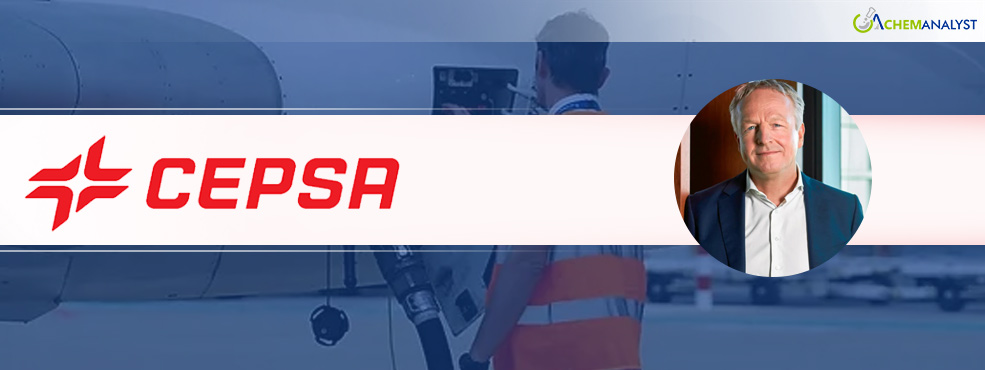Welcome To ChemAnalyst

Cepsa has begun supplying sustainable aviation fuel (SAF) in the Canary Islands, making this eco-friendly fuel available at the North Tenerife and Gran Canaria airports. In the coming weeks, the company plans to expand its SAF offerings to the archipelago's other major airports. This biofuel can reduce aircraft emissions by up to 90% over its entire life cycle compared to conventional kerosene, making it a significant advancement for sustainable aviation.
With this latest initiative, Cepsa has extended its SAF supply to include these Canary Islands airports, joining five other major airports in Spain—Madrid, Barcelona, Palma de Mallorca, Málaga, and Seville—where the company already provides sustainable fuel. Álvaro Macarro, Cepsa’s Director of Sustainable Aviation, emphasized the importance of this development, stating, "We’re making progress towards our goal of decarbonizing the aviation sector, while also implementing our firm commitment to supplying the Canary Islands with energy that produces low levels of CO2 emissions. We’re proud to be doing our part to help improve the sustainability of this region’s aviation and tourism sectors."
As a leading producer and supplier of aviation fuels in Spain, Cepsa produces its sustainable fuel at the La Rábida Energy Park near Huelva, utilizing used cooking oils to promote a circular economy. This approach not only contributes to sustainability but also aligns with broader environmental goals.
To ensure a steady supply of SAF to its customers, Cepsa has commenced construction of the largest second-generation biofuels plant in southern Europe, in collaboration with Bio-Oils. This €1.2 billion facility, scheduled to start operations in 2026 in Palos de la Frontera near Huelva, will have a versatile production capacity of 500,000 metric tons of SAF and renewable diesel. With this project, Cepsa aims to become the leading producer of second-generation (2G) biofuels in Spain and Portugal, targeting an annual production capacity of 2.5 million metric tons of biofuels, of which 800,000 metric tons will be SAF. This volume is enough to facilitate flights around the globe 2,000 times.
Cepsa’s latest move in the Canary Islands aligns with several United Nations Sustainable Development Goals (SDGs) outlined in the 2030 Agenda, including SDG 7 (Affordable and Clean Energy), SDG 8 (Decent Work and Economic Growth), SDG 12 (Responsible Consumption and Production), and SDG 13 (Climate Action). By supplying sustainable aviation fuel, Cepsa is making significant strides in promoting environmental sustainability and supporting the local economy.
Cepsa is a prominent global company dedicated to sustainable mobility and energy, backed by extensive technical expertise. With nearly 90 years of experience, Cepsa has grown into one of Spain's leading energy companies, expanding its operations across five continents. The company is supported by shareholders Mubadala Investment Company Group and The Carlyle Group, which have contributed to its continued success and global reach.
Cepsa has begun supplying sustainable aviation fuel (SAF) in the Canary Islands, making this eco-friendly fuel available at the North Tenerife and Gran Canaria airports. In the coming weeks, the company plans to expand its SAF offerings to the archipelago's other major airports. This biofuel can reduce aircraft emissions by up to 90% over its entire life cycle compared to conventional kerosene, making it a significant advancement for sustainable aviation.
With this latest initiative, Cepsa has extended its SAF supply to include these Canary Islands airports, joining five other major airports in Spain—Madrid, Barcelona, Palma de Mallorca, Málaga, and Seville—where the company already provides sustainable fuel. Álvaro Macarro, Cepsa’s Director of Sustainable Aviation, emphasized the importance of this development, stating, "We’re making progress towards our goal of decarbonizing the aviation sector, while also implementing our firm commitment to supplying the Canary Islands with energy that produces low levels of CO2 emissions. We’re proud to be doing our part to help improve the sustainability of this region’s aviation and tourism sectors."
As a leading producer and supplier of aviation fuels in Spain, Cepsa produces its sustainable fuel at the La Rábida Energy Park near Huelva, utilizing used cooking oils to promote a circular economy. This approach not only contributes to sustainability but also aligns with broader environmental goals.
To ensure a steady supply of SAF to its customers, Cepsa has commenced construction of the largest second-generation biofuels plant in southern Europe, in collaboration with Bio-Oils. This €1.2 billion facility, scheduled to start operations in 2026 in Palos de la Frontera near Huelva, will have a versatile production capacity of 500,000 metric tons of SAF and renewable diesel. With this project, Cepsa aims to become the leading producer of second-generation (2G) biofuels in Spain and Portugal, targeting an annual production capacity of 2.5 million metric tons of biofuels, of which 800,000 metric tons will be SAF. This volume is enough to facilitate flights around the globe 2,000 times.
Cepsa’s latest move in the Canary Islands aligns with several United Nations Sustainable Development Goals (SDGs) outlined in the 2030 Agenda, including SDG 7 (Affordable and Clean Energy), SDG 8 (Decent Work and Economic Growth), SDG 12 (Responsible Consumption and Production), and SDG 13 (Climate Action). By supplying sustainable aviation fuel, Cepsa is making significant strides in promoting environmental sustainability and supporting the local economy.
Cepsa is a prominent global company dedicated to sustainable mobility and energy, backed by extensive technical expertise. With nearly 90 years of experience, Cepsa has grown into one of Spain's leading energy companies, expanding its operations across five continents. The company is supported by shareholders Mubadala Investment Company Group and The Carlyle Group, which have contributed to its continued success and global reach.
We use cookies to deliver the best possible experience on our website. To learn more, visit our Privacy Policy. By continuing to use this site or by closing this box, you consent to our use of cookies. More info.
